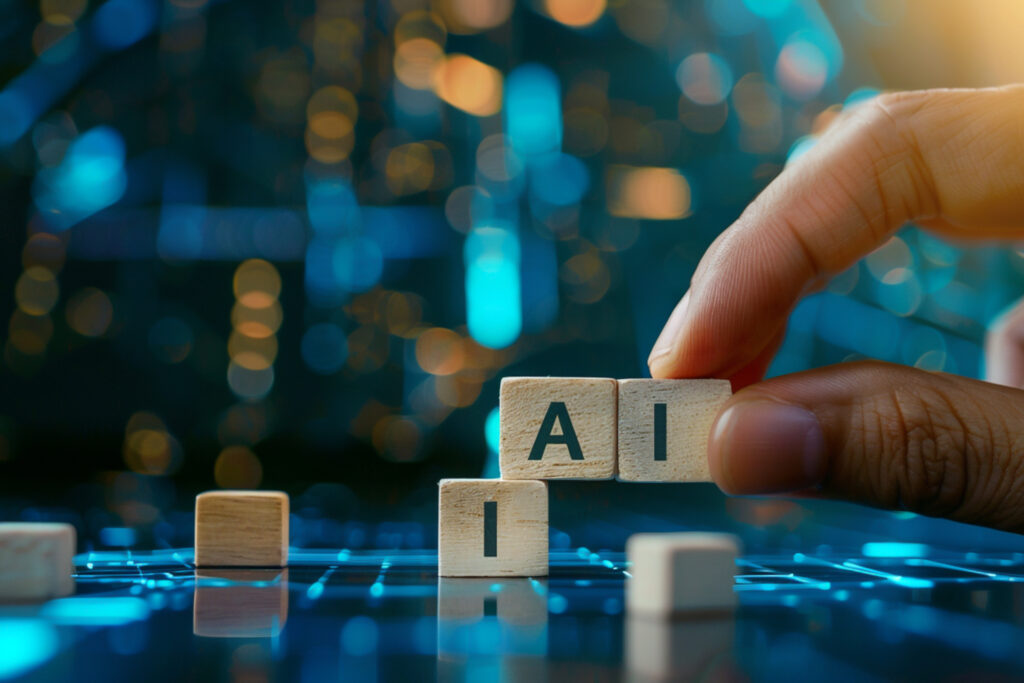
An Introduction to Artificial Intelligence in the Workforce
- Niraj Patel
Artificial Intelligence (AI) has exploded in popularity in the past few months. Businesses and consumers worldwide are incorporating AI tools into their daily lives for many reasons. Some are relying on it for automation, others for ideas, and some to make life just a little bit easier.
But the concern amongst many is the future. Companies like OpenAI are leading the charge, and many wonder about artificial general intelligence. Tools like Midjourney, ChatGPT 4, DALL-E, and more are increasing by the second. Each tool solves a different problem but is universally accepted as a viable option for writing and image generation. As their capabilities become more robust, people have begun to wonder: will AI replace my job?
According to Ethan Mollick, Associate Professor at the Wharton School of the University of Pennsylvania, the answer is, unsurprisingly, a bit more complex than a simple yes or no.
Will AI Take My Job?
Searches for phrases like “will AI take my job” and “AI taking over” have surged by 900% in the past three months, marking a clear worry amongst people about the potential of these tools. The short answer is, yes, AI will most likely replace parts of your job.
But that doesn’t necessarily need to be a problem. Innovation, in any form, often overturns the established order. Those who become successful are those who understand this and embrace that innovation. In his book, Co-Intelligence: Living and Working with AI, Ethan emphasizes that the key is to integrate AI into your work intelligently and benefit from this industrial paradigm shift.
To do this, you must consider the use cases for AI within your current and potentially future roles. Much like an email vs a physical letter, the usage of a particular tool may vary depending on the industry. I’ll go into a bit more detail in the next section and include some pointers from Ethan.
How to Embrace AI
The concept of “Co-Intelligence” hinges on people and AI working in harmony. While sci-fi has taught us to fear the AI takeover, the reality is that modern artificial intelligence tools are, in many cases, designed specifically for analysis. For many, introducing AI will save them time by performing manual, time-consuming tasks like document analysis, writing, and more.
To better understand the ideal approach, Ethan provides four key suggestions on how to embrace “Co-Intelligence:”
Always Invite AI to the Table
Experiment widely with AI and collaborate with it. Doing so will help you become a top expert in applying AI within your field. You’ll learn how AI can assist you, where its limits are, and how to leverage it without relinquishing control over your own decisions.
Keep Humans in the Loop
As AI becomes more capable, remain critical and ask ethical questions. While AI excels at predicting text and generating responses, it doesn’t “understand” the way humans do. We must intervene to prevent errors, ensure factual accuracy, and guide AI’s development in alignment with our values and ethical standards.
Treat AI Like a Person—But Know It’s Not One
By interacting with AI as if it were a human-like entity, you can better guide it and receive more relevant output. However, remember that AI is still just a tool. Assigning it a clear and specific persona can be effective, but always recognize that AI lacks consciousness and can still make mistakes.
The AI We Use Now Is the Worst We’ll Ever Use
Many tasks that were once exclusive to humans will eventually be handled by AI. Even if AI stopped evolving today, future adaptations and its ongoing use will ensure that the technology we work with tomorrow is far more advanced than what we have now. Mollick’s message is clear: we must embrace both the excitement and fear surrounding these powerful co-intelligences, preparing ourselves for the rapid changes ahead.
Navigating the Future with AI
In today’s fast-evolving landscape, the question isn’t whether AI will change how we work, but how we’ll adapt. Mollick’s book emphasizes that AI will be an integral part of the workplace, but its role is complementary, not a replacement. By mastering AI’s capabilities, we can ensure it enhances our work rather than threatens it.
- Contact Us